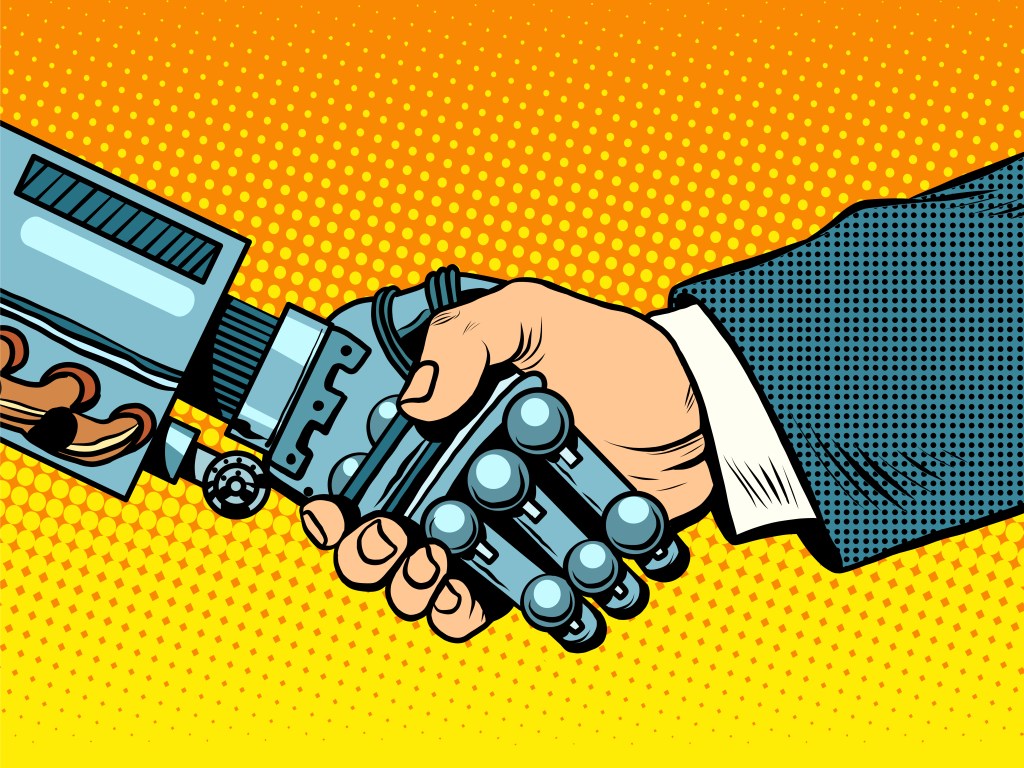Matt Beane
In the popular media, we talk a lot about robots stealing jobs. But when we stop speculating and actually look at the real world of work, the impact of advanced robotics is far more nuanced and complicated. Issues of jobs and income inequality fade away, for example — there aren’t remotely enough robots to affect more than a handful of us in the practical sense.
Yet robots usually spell massive changes in the way that skilled work gets done: The work required to fly an F-16 in a combat zone is radically different from the work required to fly a Reaper, a semi-autonomous unmanned aerial vehicle, in that same zone.
Because they change the work so radically, robot-linked upheavals like this create a challenge: How do you train the next generation of professionals who will be working with robots?
My research into the increasing use of robotics in surgery offers a partial answer. But it has also uncovered trends that — if they continue — could have a major impact on surgical training and, as a result, the quality of future surgeries.
As I have previously explained, robotic surgical systems allow for one (liable) senior surgeon to take near-complete control of the surgical act. This means trainees are involved less — far less — in performing surgical work, which spells trouble for the profession’s competence and legitimacy. Who wants to be operated on by a surgeon who has watched a lot of surgery, but done very little?
If we are at the cusp of a robotic era, I think there are some crucial lessons to be learned here for the world of skilled work in general.
A few points set the stage for these lessons. Many fiercely debate whether robots are the equivalent of the canary in the coal mine or a red herring. Partially this is because we don’t agree on how to count them — are robots only mechanical devices guided by AI and fed data by sensors, or are they also things like software and process automation? The second of those groups is far, far bigger and has had far, far greater impact on jobs and the economy than the other.
Even if we count conservatively, there is reason to think that robots are about to have their “PC” moment. Robot development and investment are accelerating rapidly, and every year robots get dramatically more capable and less expensive — the Internet means that what one robot learns, many can learn instantly, for example.
If we’re about to see explosive growth in robotics, it is important to keep in mind that, in principle and in practice, robots add real value when they enhance human capability rather than replace humans. But what counts as enhancement or replacement changes when you look up close.
Paradoxically, for example, it looks like the Da Vinci Surgical System is reducing surgical capacity in practice. Traditionally, surgical residents learned the craft by assisting senior surgeons. This is partly due to a happy accident — surgeons needed more skilled arms and thus relied on residents for assistance. Residents could observe and, under the watchful eye and hands of senior surgeons, perform procedures or even take over. Senior surgeons typically retract tissue so the resident can cut or suture, for example.
Traditional surgical practice basically demanded that residents play every minute of the game, literally shoulder to shoulder with their mentor. That’s how surgical training has been done since the early 20th century.
Robotics upsets this dynamic.
In many Da Vinci procedures, residents find themselves on the edges of the playing field. When once they might get four hours of practice during a traditional operation, now they get 10-15 minutes during a Da Vinci procedure — if they get a chance to participate at all. It’s not that the robotics technology itself prevents residents from learning; the technology just makes it iPhone-easy for liability-saddled attending surgeons to assume complete control. The expert does the work, which is good for patients in the short run, but the profession itself is in a new kind of trouble.
So what’s the broader lesson here for the future of skilled work? Surgeons are one of the first professional groups to deeply integrate sophisticated robotics systems into their methods, and the result is that surgery itself is radically reconfigured. But as with others that have already crossed this threshold — like pilots — the rush to integrate the latest robotic system may obscure the need for wholesale revisions to training methods so that humans can learn to perform even better in collaboration with robotic systems.































Comment